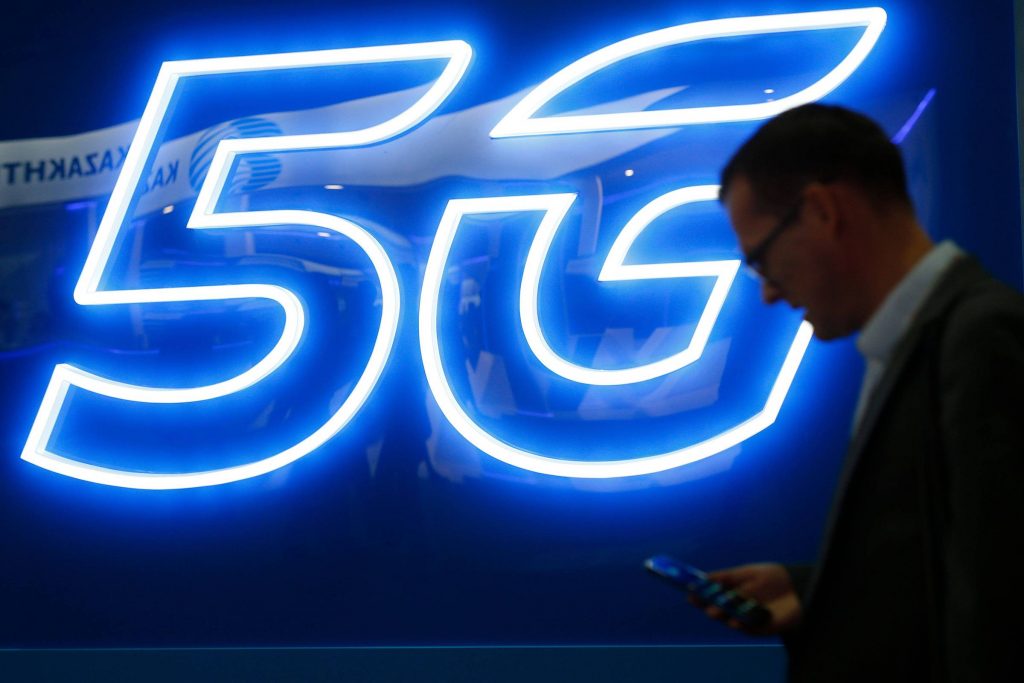RIO DE JANEIRO, BRAZIL – In market announcements, Telefônica – owner of Vivo– and TIM reported that the two companies have expressed their interest to Bank of America and Merrill Lynch, financial advisors to Oi, “in starting negotiations towards a potential joint acquisition of all or part of the mobile business of the Oi Group”. If the offer is completed, each of the two will be allocated a portion of the business.

Oi’s renegotiated debt today stands at approximately R$14 billion (US$3.5 billion). With the sale of the mobile telecommunication sector, the company may raise up to R$18 billion, according to market estimates.
The sale of the mobile operator was the solution found by the current shareholders to ensure that the company emerges in a more competitive scenario. In talks with representatives of the government and ANATEL (National Telecommunications Agency), the president of the Oi Group, Rodrigo Abreu, stated that the company intends to become a major supplier of fixed infrastructure – network and services – to competitors throughout the country, particularly in the installation of 5G networks.
“The interest in the deal stems from the perspective that if it materializes, it will add value to the company, generating benefits to its customers and shareholders, through accelerated growth, increased operational efficiency and service quality,” reported TIM. Telefônica also mentioned improvements in efficiency and quality.
Meanwhile, Oi announced to the market that these indications confirm the market’s interest in its mobile operations.
“However, to date, there is no commitment from Oi or any of these third parties to carry out such sale, nor has any binding instrument been signed in this regard,” it stated.
The company further reported that it continues to analyze all alternatives “that may provide greater efficiency to the implementation of its strategic plan, and it is currently unable to determine that potential negotiations will effectively come to a successful conclusion and that a sale transaction will be carried out”.
Stalemate in Auction
However, an article in the Folha de S.Paulo newspaper showed that the potential sale of Oi’s mobile telecommunication sector has created a deadlock between the government and ANATEL that could lead to the review of the 5G auction bid notice, scheduled for the end of this year.
If Oi is bought before the auction, experts from the Ministry of Science, Technology, Innovation, and Communications advocate a new distribution of frequencies in the blocks already established.
According to ANATEL’s advisors, if there are frequency surpluses with the sale of Oi, such surplus can be sold in another round of 5G bids. This has already occurred in Brazil’s implementation of third-generation telecommunication.

To enable the deal that pledges to save the company, Oi requested the extension of its judicial reorganization status in February. If the reorganization is extended by the judge, it will pave the way for interested parties to submit purchase proposals to a committee of Oi’s creditors. An auction would then be scheduled to select the best bid.
If the sale of Oi materializes for one of such companies, part of the 5G auction blocks will lose its attractiveness. According to the auction layout, the companies will be required to massify the 4G coverage, which today fails to reach 100 percent of Brazil’s territory.
In the announcement, ANATEL reserved a frequency of 700 Mhz exclusively for Oi to operate 4G in the country – the only one that does not operate with that band. In 2014, deeply in debt, it was out of the 4G frequency dispute.
Without Oi, the 5G block may have no buyer, since Vivo, TIM, and Claro already operate with this technology. Blocks in 2.3 Ghz frequency will also be offered for 4G and 5G telecommunication. It would also be less attractive because the same service can be offered in 1.8 Ghz, a band today operated by Oi.
Moreover, without Oi in the auction, Ministry experts argue for a review of the agreement made between TV stations and operators to expand the 3.5 Ghz band, which will be auctioned, but which today is operated by satellites and picked up by satellite dishes.
This agreement has unlocked the 5G edict. Operators agreed to bear the costs of mitigating satellite interference in exchange for an extension of 100 Mhz. This extension would accommodate at least four large operators in the new technology service. With Oi out of the auction, government experts rule out the extension, which would prevent satellite repositioning in new frequency ranges.
The ANATEL is against this approach and supports the agreement, which would allow a larger 5G offer in the country, with new competitors. The plan of the operators interested in Oi is to submit a proposal between March and April this year, to the judge in charge of the reorganization proceeding.
In case the deal is not completed before the 5G auction, Oi would take part in the bid to acquire 4G and 5G frequencies. This would provide the company with more assets and, therefore, make it more expensive. The issue is that companies interested in Oi’s mobile sector are decapitalized because they will also take part in the auction – they will have to make considerable disbursements to acquire 5G licenses.
According to the agency’s experts, this situation is irrelevant to the dispute. Under the terms of the auction, the value of concessions will be reduced and may be paid in up to 20 installments, one each year over the license term.
Unlike previous auctions, that for the fifth generation will propose higher investments in infrastructure in exchange for a shorter concession.
According to some sources in ANATEL, opening this debate at this time will lead to even further delays in the auction procedure. Behind the scenes, many observers project that it will only occur in the first quarter of 2021.
Source: Folhapress

